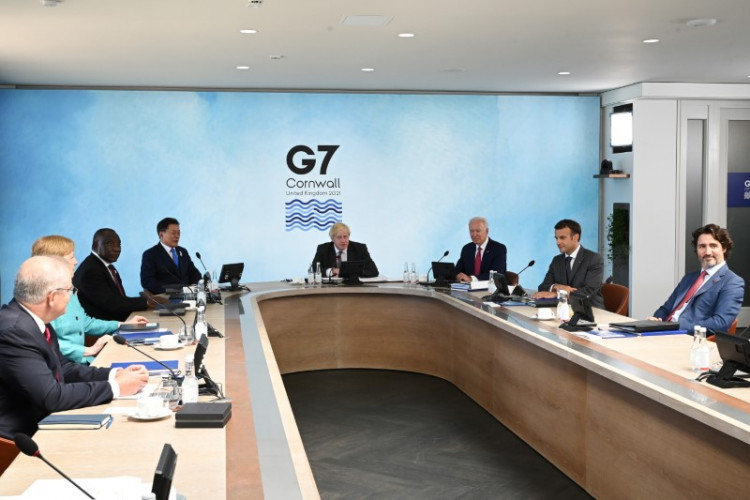Senior U.S. officials said on Wednesday that leaders of the wealthy Group of Seven and NATO democracies will seek to increase pressure on Russia over its war in Ukraine next week, while also emphasizing their ongoing concerns about China.
President Joe Biden will travel to southern Germany on Saturday to meet with other G7 leaders before heading to Madrid for a summit where NATO is expected to announce plans to expand its forces in Eastern Europe and Washington will present measures to strengthen European security.
The inclusion of leaders from Australia, Japan, South Korea, and New Zealand at the NATO summit for the first time was intended to demonstrate that the war in Ukraine has not harmed Western nations' focus on China, according to officials.
G7 leaders will meet on June 26-28 at an alpine castle an hour south of Munich to discuss China's "coercive economic practices," which have become even more aggressive in recent years, according to one official.
"Russia's war against Ukraine has galvanised our partnerships around the world," an official said. "It's also showing how Ukraine is not causing us to take our eye off the ball on China. In fact, quite the opposite."
Another focus will be the impact of Russia's war in Ukraine on driving up energy and food prices and endangering low- and middle-income countries, according to officials.
According to the official, a new strategic concept to be endorsed by NATO leaders when they meet in Madrid on June 29-30 will address threats posed by Russia and, for the first time, China.
Germany, which is leading the G7 this year, has also invited Argentina, India, Indonesia, Senegal, and South Africa to attend select summit sessions.
Officials said G7 leaders will launch a new infrastructure initiative aimed at providing high-quality, transparent investment alternatives to low- and middle-income countries, a clear reference to China's Belt and Road initiative, which has been criticized for opaque contracts and onerous loan terms.
"At the summit, we will roll out a concrete set of proposals to increase pressure on Russia and demonstrate our support collectively for Ukraine," one of the officials added, without providing specifics.
According to U.S. officials, Ukrainian President Volodymyr Zelenskyy will electronically address both sessions, outlining his strategy for battling Russia as well as the security support his nation needs to carry it out.
There was no mention of a bilateral meeting between Biden and Turkish President Tayyip Erdogan, who is opposing Finland and Sweden from joining NATO, but one of the officials said Washington was confident that Turkey's concerns would be addressed and a consensus reached.






